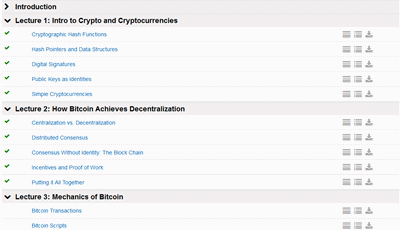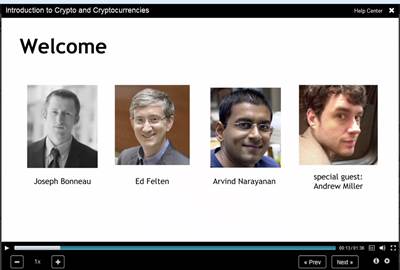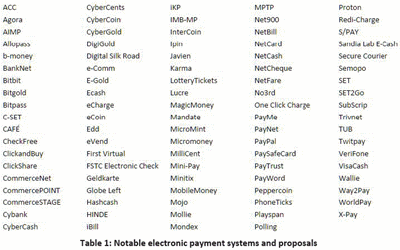About ten minutes into the first video, I suddenly realized I wasn't understanding the lecture. Then when I reached the end, I couldn't answer the first question. Looks like I'll have to apply some real brainpower to this thing if I want to make it work.
It turned out that I had a preconceived idea about a piece of the logic underlying bitcoin that contained a misperception on my part. Once I recognized this and eliminated it, the rest was easier. The course's 'Welcome' section says,
This week, your main tasks are to watch lectures 1 and 2 and to complete the embedded quizzes. [...] We also encourage you to read the book chapters that closely follow the lectures. For technically complex explanations, you may find it helpful to use the text and go at your own pace.
It took me exactly a week to work through the first two lectures. I'm sure that I won't be able to maintain this pace week after week, and I only skimmed the readings.

The 'Welcome' section points to another resource, Bitcoin.org - Open source P2P money, that I don't remember seeing before. I'll look at this another time.

